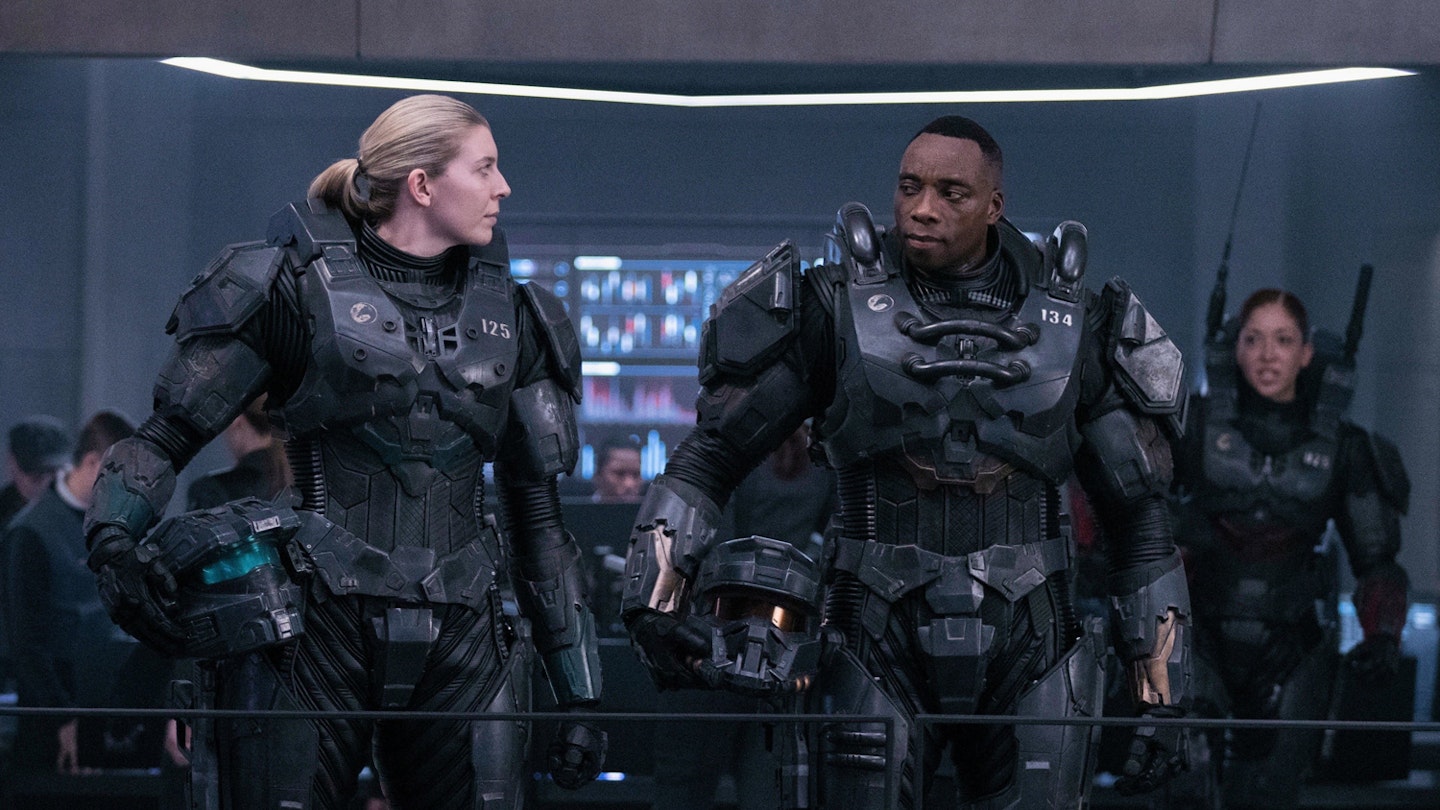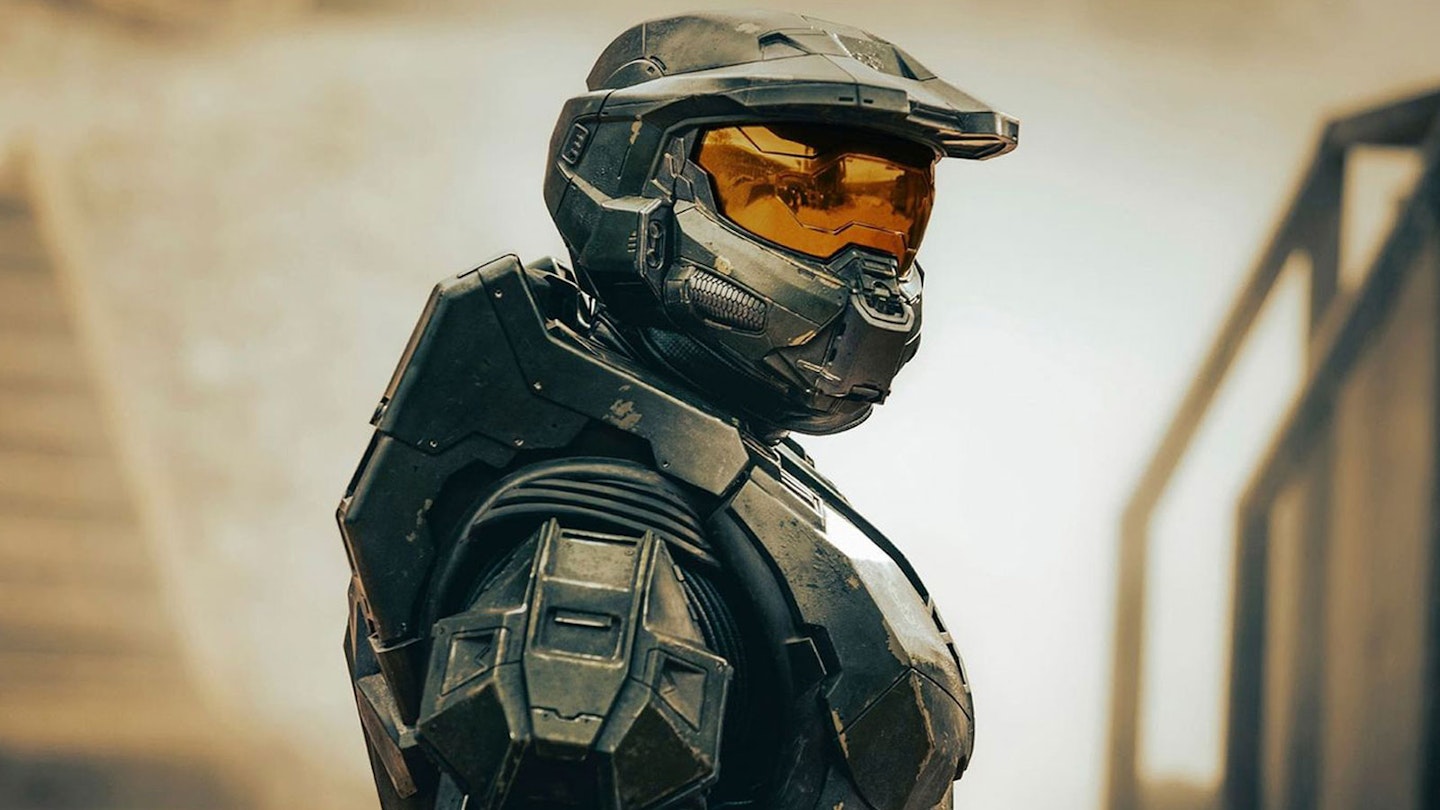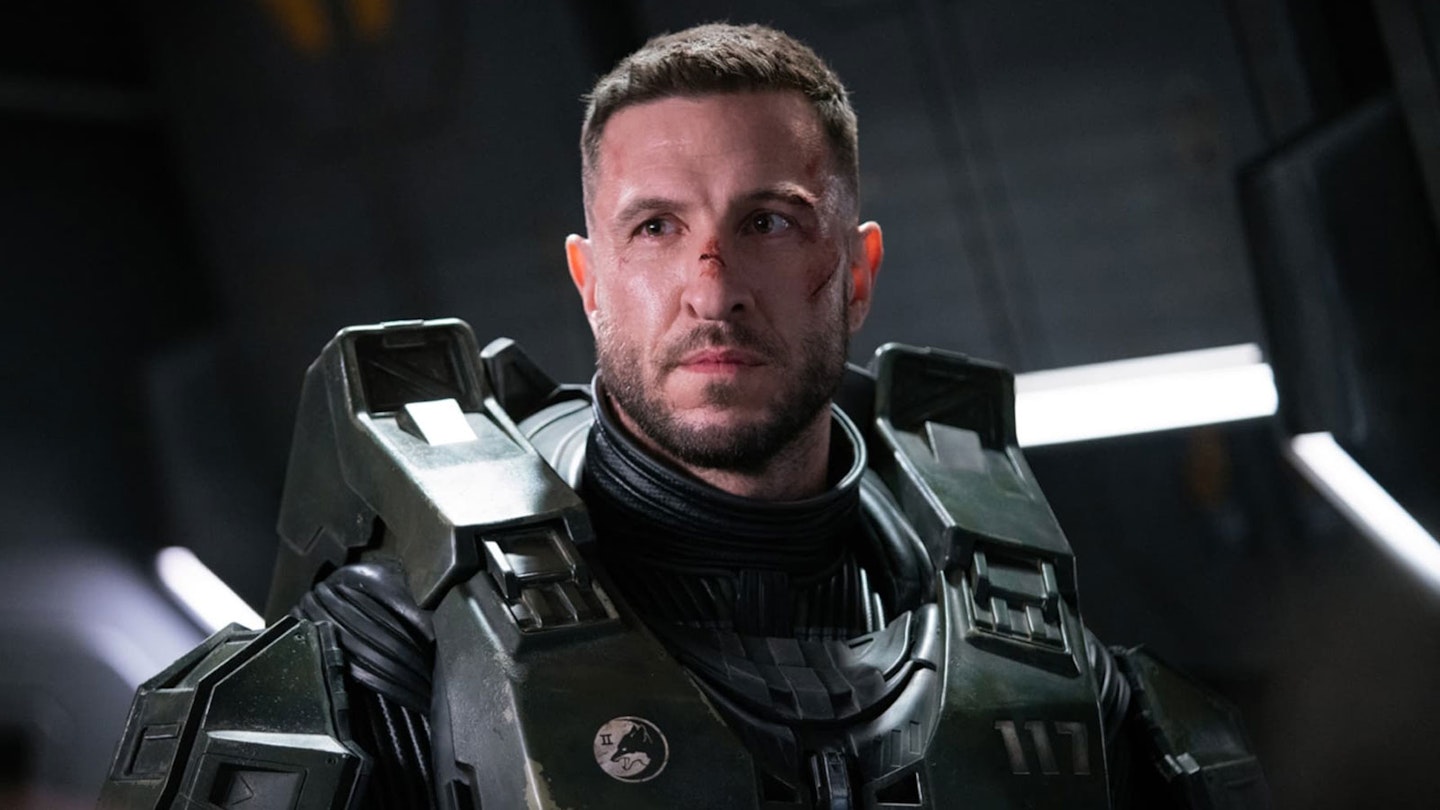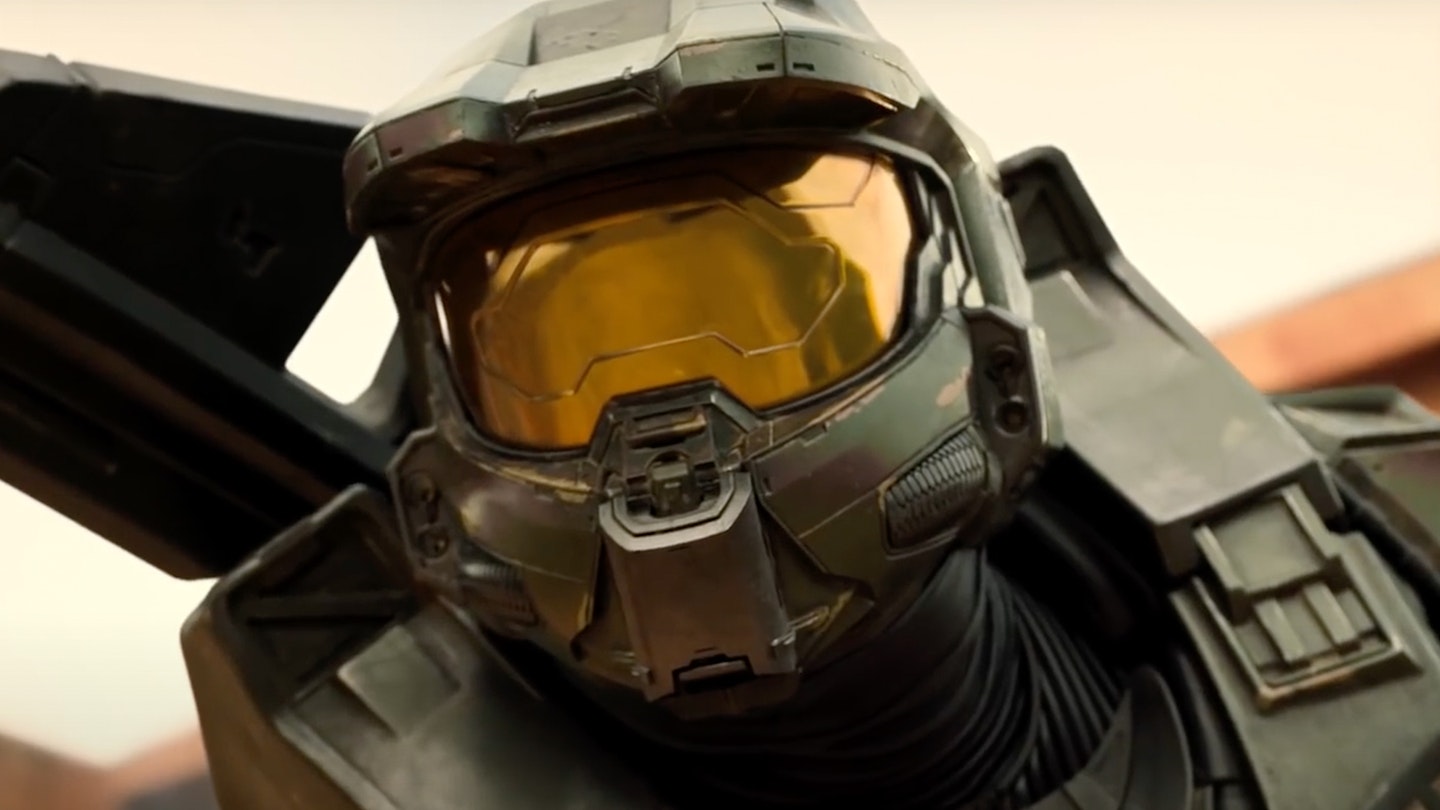Episodes viewed: 7 of 9
Streaming on: Paramount+
The first thing you notice going into Paramount’s new flagship sci-fi series is that it does not fuck about. Within the opening ten minutes, we witness a group of wayward teenagers mercilessly butchered by Sangheili Elites, a bunker of cowering children casually gunned down where they hide, and an entire settlement slaughtered in the time it would take to make a round of tea and biscuits. If you were expecting an all-ages romp over which to bond with your gamer kids, then you might want to look elsewhere.

While drawn from the Byzantine mythology of Microsoft’sHalogames, the series has made the sagacious decision to sever ties with 21 years of piled-up lore about Forerunners, Precursors, Prophets, Banished and other dramatic nouns with capital letters. It is in this new, unsullied timeline that we find the emerald-plated John-117, aka the Master Chief, here embodied in the 6’ 5” frame of Pablo Schreiber (Orange Is The New Black). Unlike in the games (or Pedro Pascal in The Mandalorian), Schreiber spends much of the show with his face on display, lending both humanity and intensity to a character largely a cipher before now. The show delves deeper into the man beneath the metal, drawing out a damaged vulnerability through both Schreiber’s performance and the character’s relationships with Yerin Ha’s teenage refugee and Natascha McElhone’s mad-eyed scientist, Dr Halsey. John isn’t a ‘good’ man — he’s a seasoned killer, forged into an unfeeling weapon by years of physical, psychological and chemical abuse.
When the action does comes, it generally delivers — you’ll just need a little patience getting to it.
The broader setting is gratifyingly murky, too, with humanity’s UNSC quickly established as no less ruthless, bloodthirsty or up for a bit of light child-murder than the Covenant. Meanwhile, their harsh colonial rule has birthed fractured underclasses, from insurgents to pirates (including an excellent Bokeem Woodbine). It’s here that we find the show’s secondary plotline, in which Ha’s Kwan tries to free her home planet of Madrigal. But while this provides texture, it also slows things down, drawing us reluctantly away from the Chief, the search to uncover his past, and the mystery of the alien relic.
Sometimes this deliberate pacing leaves room for interesting character work — Kate Kennedy’s Kai-125 going through her own self-awakening; Charlie Murphy’s Makee, who has grown up among the Covenant — but oftentimes just leads to long, uneventful detours and stuffy info dumps. When the action does comes, it generally delivers — you’ll just need a little patience getting to it.
Spielberg, Jackson, Blomkamp and Garland are just a few of the names that have attempted this adaptation over the years. Now that it’s finally here, Halo does an admirable job of transforming the series’ first-person firefights into a compelling, serialised drama. It won’t trouble Arcane’s place as the current benchmark for video-game adaptations, but the show captures the chunky, tactile quality of the Master Chief perfectly, and its involving, surprisingly grim take on the Halo universe is one we’d like to see more of.



